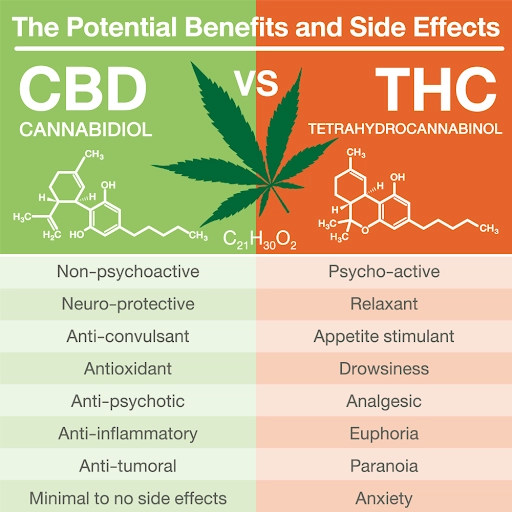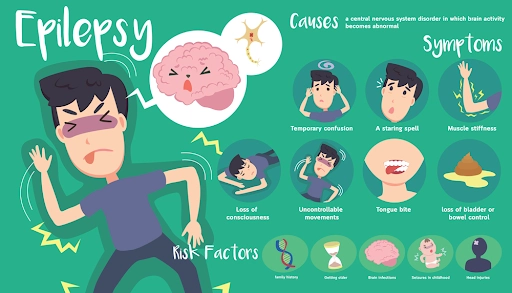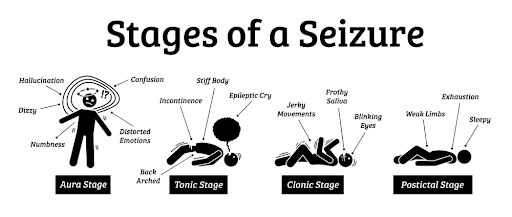Epilepsy is a neurological disorder that causes recurrent, unprovoked seizures. Seizures are periods of abnormal brain activity that can cause convulsions, changes in behavior, and a loss of consciousness.
Marijuana has been shown to be effective in reducing the frequency and severity of seizures in some people with epilepsy. The active ingredients in marijuana, known as cannabinoids, share many similarities with a class of drugs called anticonvulsants. Anticonvulsants are medications used to treat seizure disorders.
Does Marijuana help reduce seizures?
The exact mechanism by which marijuana reduces seizure activity is not fully understood. Cannabinoids are thought to interact with receptors in the brain known as CB1 and CB2 receptors. These receptors are involved in a variety of neurological processes, including seizure activity. Studies have shown that activation of CB1 receptors can decrease seizure activity while activating CB2 receptors can increase it. It is thought that the balance between CB1 and CB2 receptor activation is what determines whether marijuana will decrease or increase seizure activity.
The answer is yes, marijuana can help to reduce seizures. As a matter of fact, Epidolex the only FDA-approved prescription Cannabidiol (CBD) was approved to treat patients 1+ years old and older. CBD is one of the many cannabinoids found in cannabis and hemp plants.
Are There Any Side Effects?
Side effects from marijuana use can include sleepiness, impaired coordination, slurred speech, dry mouth, and red eyes. In some people, marijuana can cause anxiety and paranoia. These side effects usually go away once the person stops using the drug. Some people who use medical marijuana to treat their seizures may also experience an increased appetite. This is known as the “munchies.”
It is essential to talk to your doctor about any potential side effects of treatment with medical marijuana. It is even more important to speak with a marijuana doctor that has experience with cannabis and seizures. If they think you will benefit they will approve you for a marijuana card. They will be able to help you weigh the risks and benefits of using this drug to treat your condition.


Marijuana has been shown to be effective in reducing the frequency and severity of seizures in some people with epilepsy. The exact mechanism by which it works is not fully understood but is thought to be related to the interaction between cannabinoids and specific receptors in the brain.
Side effects from marijuana use are typically mild and go away once the person stops using the drug but can include sleepiness, impaired coordination, slurred speech, dry mouth, and red eyes. Some people may also experience anxiety or paranoia. Talk to your doctor about any potential side effects of treatment with medical marijuana before starting treatment.
Legal & Medical Disclaimer
The information provided on this blog is for general informational and educational purposes only and is not intended as, nor should it be considered a substitute for, professional medical advice, diagnosis, or treatment. Always seek the advice of your physician or other qualified health provider with any questions you may have regarding a medical condition or treatment and before undertaking a new health care regimen. Never disregard professional medical advice or delay in seeking it because of something you have read on this website.
The content on this blog is provided “as is” and no representations are made that the content is error-free. The website takes no responsibility for errors or omissions in the content of this blog or other websites or resources that may be referenced or linked to herein. The website’s content is not intended to recommend or endorse any specific tests, physicians, procedures, opinions, or other information that may be mentioned on the site.
By using this blog, you agree to the foregoing terms and conditions, which may from time to time be changed or supplemented by this website. If you do not agree to the foregoing terms and conditions, you should not use this blog.
The information provided on this blog is for general informational and educational purposes only and is not intended as, nor should it be considered a substitute for, professional medical advice, diagnosis, or treatment. Always seek the advice of your physician or other qualified health provider with any questions you may have regarding a medical condition or treatment and before undertaking a new health care regimen. Never disregard professional medical advice or delay in seeking it because of something you have read on this website.
The content on this blog is provided “as is” and no representations are made that the content is error-free. The website takes no responsibility for errors or omissions in the content of this blog or other websites or resources that may be referenced or linked to herein. The website’s content is not intended to recommend or endorse any specific tests, physicians, procedures, opinions, or other information that may be mentioned on the site.
By using this blog, you agree to the foregoing terms and conditions, which may from time to time be changed or supplemented by this website. If you do not agree to the foregoing terms and conditions, you should not use this blog.




